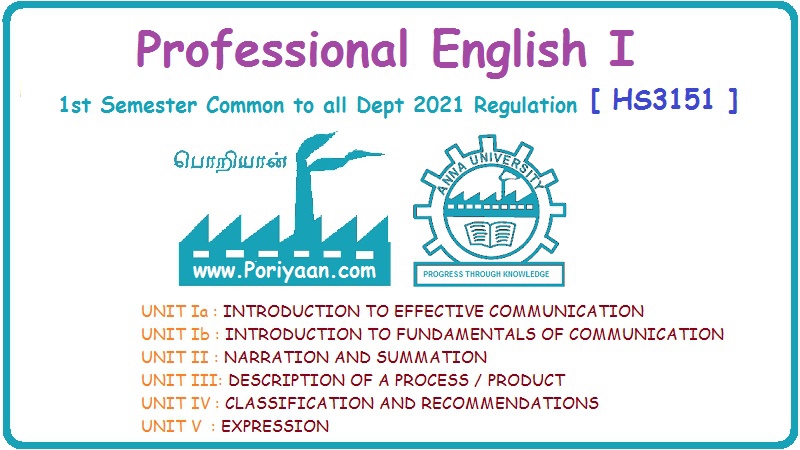Professional English I: Skill 4: Introduction to Effective Communication: Writing
Writing
Professional English
Humans are social creatures. They crave for communication with their fellow beings and have been interacting with one another since ages.
SKILL - 4 WRITING Humans are social creatures. They crave for communication with their fellow beings and have been interacting with one another since ages. Communication started with oral interaction. Writing as a skill developed at a later stage as man took time to get mature enough to express himself / herself using the written channel of communication. Hence, writing is a skill that requires growth, which comes with training, experience and practice. William Faulkner has rightly asserted “A writer needs three things, experience, observation, and imagination, any two of which, at times any one of which, can supply the lack of the others”. In the present age where communication is considered as key to success in personal, social and professional life, writing is the major skill one should master. Writing requires all the language skills—listening, speaking and reading-to get used to it. It is the most interesting job that you could do in your lifetime. Writing exams, assignments and articles, poems, stories, novels, writing about yourself, your routine activities and writing a personal dairy-are all writing activities you regularly use as a student to pass the examination or to create interest in people. In your day-today working you communicate through writing letters, applications, reports, e-mails, SMS, etc. All these types of writings require a certain amount of qualities, which you should possess as a writer. If you want to be a good writer or would like to become a better one, there are plenty of things you can do to improve and become better at communicating via the written medium. To achieve this aim you should read a lot, write every day, and interact with people to broaden your horizon by knowing their ideas, learn some rules of writing, use imagination, enrich your expression and brainstorm yourself to develop creative writing. At the same time, you should be aware that the style of writing changes with time, although it may not change as frequently as fashions. The Victorian verbosity and formal English of the earlier days has given way to the current trend of plain English, which is clear, concise, direct, unambiguous and fluent. The wall paper English overloaded with official jargons is not the call of the day. Even among the native users of English, plain and direct language is regarded as a virtue in communication. “Good writing can be defined as having something to say and saying it well” says Edward Abbey. A good piece of writing should take into account the following points: ✓ Getting the grammar right ✓ Having a range of vocabulary ✓ Punctuating meaningfully ✓ Using a variety of sentence structures ✓ Employing imagination and creativity ✓ Developing and organizing the content clearly ✓ Linking ideas and information to develop a topic ✓ Implementing a suitable style and using a correct layout ✓ Containing a sense of purpose, sense of audience and sense of direction ✓ Encompassing directness, conciseness, plainness and fluency While writing, be mindful of the fact that once something is in written form, it cannot be taken back. Communicating in this way is more concrete than verbal communications, with less room for errors.INTRODUCTION
Professional English I: Skill 4: Introduction to Effective Communication: Writing : Tag: : Professional English - Writing
Related Topics
Related Subjects
Professional English I
HS3151 1st semester | 2021 Regulation | 1st Semester Common to all Dept 2021 Regulation
